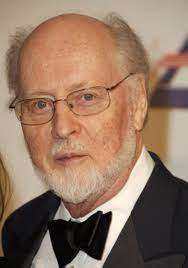to popular movie series such as Star Wars, Indiana Jones, Jurassic Park, Jaws, and more. He has had tremendous success and has gotten the opportunity to work with numerous high-profile directors including Alfred Hitchcock, George Lucas, and Steven Spielberg. How then, does this talented film score composer go about creating his musical masterpieces?
The secret that Williams shared is that his process has always remained consistent: He writes music "the old-fashioned way, with pencil and paper, and doesn't begin composing until he's actually seen a rough cut of the film", he states in an interview done with NPR. He explains how reading a script helps him to form "all kinds of preconceptions about how things look, what the location's like, and what the actors are like" but how sometimes it does not align with what the director had in mind at all.
This has taught Williams that sometimes, freedom can be limited when working in teams. Williams unknowingly (or maybe knowingly) made it apparent that "critique" is a very important step in his creative process. Unlike authors or storytellers, Williams has the inconvenience of needing his film scores to be approved by every director that he works with. However, these boundaries and limitations seem to only enhance the amount of creative work that he is able to produce.
Within the Four C Model of Creativity, John Williams' work would fall under the category of Pro-C creativity - emphasizing the talent, achievements, and effort that he has put in over the span of his seven decade career. There are some out there who may even argue that he is deserving of the 'Big-C' category and these arguments are valid - his work can most definitely be considered to be artistic masterpieces unlike anything we have seen or heard in this industry. John Williams will go down as one of the best film score composers of all time and we should consider ourselves to be lucky to have heard his beautiful music while he is still alive.
Sources:
https://www.classical-music.com/composers/john-williams-exclusive-interview/
https://www.npr.org/sections/deceptivecadence/2012/11/10/164615420/john-williams-inevitable-themes
https://www.imdb.com/name/nm0002354/
https://www.bostonmagazine.com/arts-entertainment/2015/10/09/john-williams-lifetime-achievement-award/



I was previously unaware of the work that John Williams created, but I am certainly able to recognize some of his work. I found it interesting that you pointed out that his creative process is only enhanced to better his work through the critiques of other big creative directors.
ReplyDeleteAndrew, I'm glad you did your post on John Williams. I'm not even well versed in classical music but I've appreciated his amazing work for years. I agree he's probably a pro-C creative—his compositions are mostly for movies, which are culturally significant but not field-changing. I also like how you dealt with his creative process, which I've wondered about in the back of my mind for a while . . . how does he do it? Knowing now that he just writes it on paper as it comes to him is great. It's also interesting to see how he's different from Tyler, the Creator, since he doesn't compose anything for a film until he sees the rough cut. Great post!
ReplyDeleteIt's amazing how he made so many recognizable works in films, and John Williams is definitely a pro-C creative because of it. I did find it interesting that his creative process involved writing the music after seeing the rough cut of the film, it did remind me of the creative that I wrote about, Yasunori Mitsuda. Being able to create music that can accurately fit into the world of the media being composed for is a great skill for a composer, and it is definitely shown in John Williams' works, as those scores are what helps make these films as memorable as they are.
ReplyDeleteI love the idea that criticism (or limits) makes you stronger, and I do think it's true. I know I've done some of my best work when working with constraints, such as when I design for shows with very specific scripts, because it forces me to be more creative in order to solve new problems that might arise.
ReplyDelete